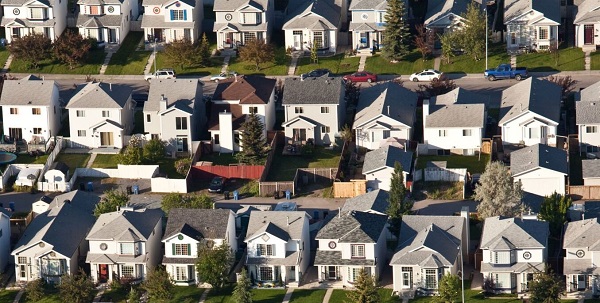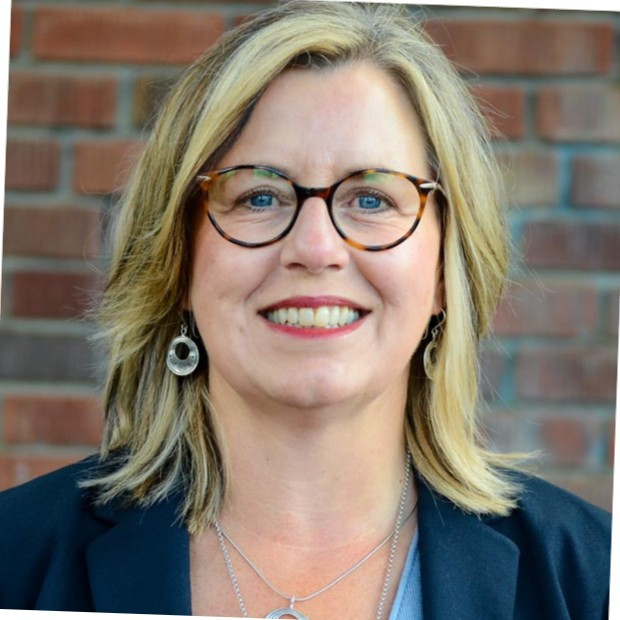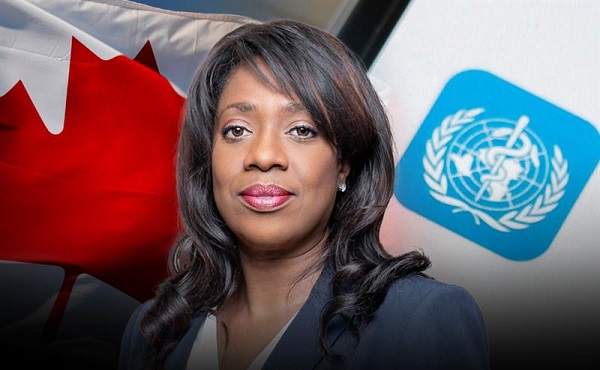Business
Jim Courtney appointed to Board of Atlas Growers

Edmonton, AB – May 8, 2018
Atlas Growers has appointed Jim Courtney to its Board of Directors effective immediately. His duties include helping Atlas Growers with innovation, governance, education and mentorship, as it becomes a licensed producer of cannabis internationally.
Jim Courtney is the president of Courtney Corp., an investment company involved in various sectors of the Canadian and global economy. Courtney has experience creating partnerships with government, suppliers, customers and employees in agriculture and the oil field. He’s also a director of several boards including, Old’s College and is a member of the Aboriginal Business Mentorship Program.
“Jim Courtney brings to Atlas Growers unparalleled strategic expertise and governance insight. At this crucial time for our business, it is timely and valuable for us. We welcome Jim to our team,” stated Sheldon Croome, President & CEO of Atlas Growers.
About Atlas Growers
Atlas Growers is an Edmonton based, late-stage applicant for an Access to Cannabis for Medical Purposes (“ACMPR”) cultivation and sales license. Atlas Growers’ initial facility will have the capacity to produce up to 5,000 kg of dried cannabis annually. Future expansion plans include up to 1,100,000 square feet of future production capacity on 100% owned, 160 acres of land. Atlas partnerships include Hole’s Greenhouses and Scott Builders. The company recently signed a financing with ATB Financial for up to $6.25 million.
Business
A Middle Finger to Carney’s Elbows Up

Elbows Up Stengthens U.S. Tariff Resolve at Canada’s Expense
The disastrously misguided “Elbows Up” campaign championed by the Carney government rooted in the fantasy that a smug, arrogant Liberal elite wields leverage over the largest economy in human history, has suffered yet another devastating blow. The latest fallout: U.S.-based truck manufacturer Paccar Inc., maker of iconic heavyweights such as Kenworth and Peterbilt, is slashing Canadian production and laying off hundreds of workers in anticipation of a 25-per-cent U.S. import tariff set to take effect next month.
Employees at Paccar’s Sainte-Thérèse, Quebec plant were informed Wednesday that the company will move production of trucks destined for the U.S. market back to its American facilities. According to Daniel Cloutier, Quebec director for Unifor, approximately 300 jobs will be eliminated, leaving roughly 500 workers at the plant.
Honking for Freedom Substack is a reader-supported publication.
To receive new posts and support my work, consider becoming a free or paid subscriber.
“They will continue building trucks for the Canadian market,” Cloutier said, noting that domestic demand represents a much smaller portion of output. At its peak, the plant produced 96 trucks per day; production will now drop to just 18 units daily. That is an 81% drop.
Paccar declined to confirm the restructuring or provide additional details. However, in a financial earnings call a day earlier, CEO Preston Feight described the U.S. tariff policy as advantageous for the company. “I think it helps Paccar significantly,” Feight said. “It gives us a competitive leg up from where we’ve been.”
U.S. Tariffs Driving Industry Shift
U.S. President Donald Trump has confirmed that all medium and heavy-duty trucks imported into the United States will face a 25-per-cent tariff beginning Nov. 1, along with an additional 10-per-cent duty on buses. The tariffs are being imposed under Section 232 of the Trade Expansion Act, which targets imports deemed to pose a national security risk.
These measures follow earlier tariffs that have already struck Canadian steel, aluminum, automobiles, copper, and lumber, forcing companies to shelve investments and reconsider their North American strategies.
Broader Auto Sector Retrenchment
Other automakers are also pulling back production in Canada. General Motors announced Tuesday it is ending production of the Chevrolet BrightDrop electric delivery van in Ingersoll, Ontario, costing over 1,100 workers their jobs. Stellantis recently confirmed plans to shift production of the Jeep Compass from Brampton, Ontario, to Belvidere, Illinois, as part of a strategy to increase U.S. output by 50 per cent by 2029.
Quebec Plant at Risk
The Sainte-Thérèse plant, which manufactures Class 5, 6 and 7 Kenworth and Peterbilt trucks, has already endured two rounds of layoffs over the past year as uncertainty around tariffs weakened demand. At peak production, the facility employed over 1,400 people.
Cloutier said the union is pressing both the Quebec and federal governments to prioritize the purchase of domestically made vehicles to sustain production levels. Without such measures, he warned, the plant could be forced to close due to high fixed costs and insufficient volume. “Let’s not pretend global trade hasn’t changed with this President,” Cloutier said. “We need to stop twiddling our thumbs.”
Bus Manufacturers Also Exposed
Quebec is also home to two major bus manufacturers, Prevost and Nova Bus, both owned by Volvo Group that could face similar challenges due to new tariffs on buses entering the U.S. Executives at both companies say they are still assessing the impact of the policy shift.
What can we learn from all this?
Perhaps our deep reliance on American innovation has consequences we have been unwilling to confront. The warning signs were evident well before Donald Trump’s election. He was explicit that tariffs would be used as a strategic tool to financially incentivize American companies to return to the United States. This was not hidden, it was a core pillar of his economic agenda.
I have said repeatedly on the Marc Patrone Show on Sauga 960 that my frustration is not with America’s strategy, but with Canada’s political class. Their smug arrogance lies in the belief that, as great as Canada can be, we could somehow dominate the greatest economy in the history of civilization rather than work with it. The Trump administration never wanted Canada to become the 51st state; they want our valuable resources and are willing to pay fair value for them, and they expect Canada to finally take our internal security threats seriously; something I have personally presented on in the United States. Yet instead of leveraging our strategic position, Canada’s leadership chose performative resistance over pragmatic partnership.
The most telling moment came when President Trump reportedly asked Justin Trudeau what would happen if the United States imposed a 25-per-cent tariff on all Canadian goods. Trudeau’s response, “It would destroy Canada” was an example of catastrophic stupidity. It handed Trump the gun he could use to execute Canada economically and perhaps cost Canada its sovereignty over the long term.
Reminiscent of the scene from The Hunt for Red October, when Captain Tupolev, in an act of smug Laurentian style arrogance, fires a torpedo at Ramius only for it to circle back and destroy his own submarine, a catastrophic miscalculation born of arrogance and a complete misunderstanding of the enemy’s capabilities. A catastrophic miscalculation that mirrors Elbows Up stupidity.
Order Now!
Honking For Freedom – The Trucker Convoy That Gave Us Hope HonkingForFreedom.com
Twitter | Locals | Rumble | Instagram
www.BenjaminjDichter.com
Audio
Freedom Coffee Podcast
Honking for Freedom Substack is a reader-supported publication.
To receive new posts and support my work, consider becoming a free or paid subscriber.
Business
Liberals backtrack on bill banning large cash gifts, allowing police to search Canadians’ mail

From LifeSiteNews
The JCCF warned that Canada will be a “police state by Christmas” if lawmakers pass three new bills introduced by the federal Liberal government of Prime Minister Mark Carney, Bill C-2, C8, and C-9.
The Canadian federal Liberal government now says after a public outcry it will rewrite portions of a bill that not only would permit police and government officials to open and examine Canadians’ personal mail but would also ban cash donations over $10,000.
Earlier this week, Public Safety Minister Gary Anandasangaree acknowledged significant shortfalls in Bill C-2, known as An Act Respecting Certain Measures Relating to the Security of the Border.
Anandasangaree said before Canada’s Senate national security committee, “We realize the consensus on what lawful access is, is not captured right now in C-2.”
He then said he had “talked to some civil rights experts” and that the bill would be amended.
As reported by LifeSiteNews, the bill has been blasted by Canada’s top constitutional experts as a “step towards tyranny” as it would impact Canadians’ charter rights as written.
As written, Bill C-2 lets police, without a warrant, conduct searches of telecom databases solely on “reasonable grounds to believe the computer data will afford evidence with respect to the commission of an offence.”
Bill C-2 was introduced on June 3 by Anandasangaree.
The legislation reads, “Part 11 amends the Proceeds of Crime (Money Laundering) and Terrorist Financing Act to prohibit certain entities from accepting cash deposits from third parties and certain persons or entities from accepting cash payments, donations or deposits of $10,000 or more.”.
The bill will also permit police and government officials to open and examine Canadians’ personal mail.
Senator Katherine Hay told the national security committee she had been told by her constituents that they were alarmed by the bill, noting how it had “police state” qualities to it.
“The words used to me, very respectfully, were concerns around Canada becoming a ‘police state,’ and I’ll just quote that, and real concerns around privacy and rights,” she said.
She asked Anandasangaree directly, “What would you say to my constituent?”
He replied, “The area where someone may say this is about a police state is a notion I would really ask people to reflect on.”
“Maybe C-2 as written may not capture, I think, the true intent of what’s called lawful access.”
He then said, “My response to you would be, it is not an option not to have a lawful access regime in Canada,” adding, “It is a primary need for law enforcement.”
Despite promising changes to the bill, Anandasangaree said it could be fixed “in a manner that doesn’t appear to trample on individuals’ civil liberties.”
The Justice Centre for Constitutional Freedoms (JCCF) has warned that buried deep within Bill C-2 are “provisions that would make it a criminal offence for businesses, professionals, and charities to accept cash payments of $10,000 or more in a single transaction or in a series of related transactions.”
“Restricting the use of cash is a dangerous step towards tyranny,” JCCF president John Carpay said.
Anandasangaree made no mention whether the cash donations’ part of the bill would be amended or removed.
The JCCF, as reported by LifeSiteNews, warned that Canada will be a “police state by Christmas” if lawmakers pass three new bills introduced by the federal Liberal government of Prime Minister Mark Carney, Bill C-2, C-8, and C-9.
The Liberal government under former Prime Minister Justin Trudeau has gone after Canadians’ bank accounts before. In 2022, it froze the bank accounts of those who donated to the Freedom Convoy against COVID mandates.
As for Carney, he has globalist ties and was called the World Economic Forum’s “golden boy” by CPC leader Pierre Poilievre. Carney has also admitted he is an “elitist” and a “globalist.”
-

 Agriculture17 hours ago
Agriculture17 hours agoFrom Underdog to Top Broodmare
-

 Carbon Tax2 days ago
Carbon Tax2 days agoBack Door Carbon Tax: Goal Of Climate Lawfare Movement To Drive Up Price Of Energy
-

 International2 days ago
International2 days agoTrump, Putin meeting in Hungary called off
-

 Alberta2 days ago
Alberta2 days agoCalgary’s High Property Taxes Run Counter to the ‘Alberta Advantage’
-

 City of Red Deer1 day ago
City of Red Deer1 day agoCindy Jefferies is Mayor. Tristin Brisbois, Cassandra Curtis, Jaelene Tweedle, and Adam Goodwin new Councillors – 2025 Red Deer General Election Results
-

 Bruce Dowbiggin1 day ago
Bruce Dowbiggin1 day agoIs The Latest Tiger Woods’ Injury Also A Death Knell For PGA Champions Golf?
-

 Alberta1 day ago
Alberta1 day agoAlberta’s licence plate vote is down to four
-

 Health17 hours ago
Health17 hours agoSovereignty at Stake: Why Parliament Must Review Treaties Before They’re Signed









